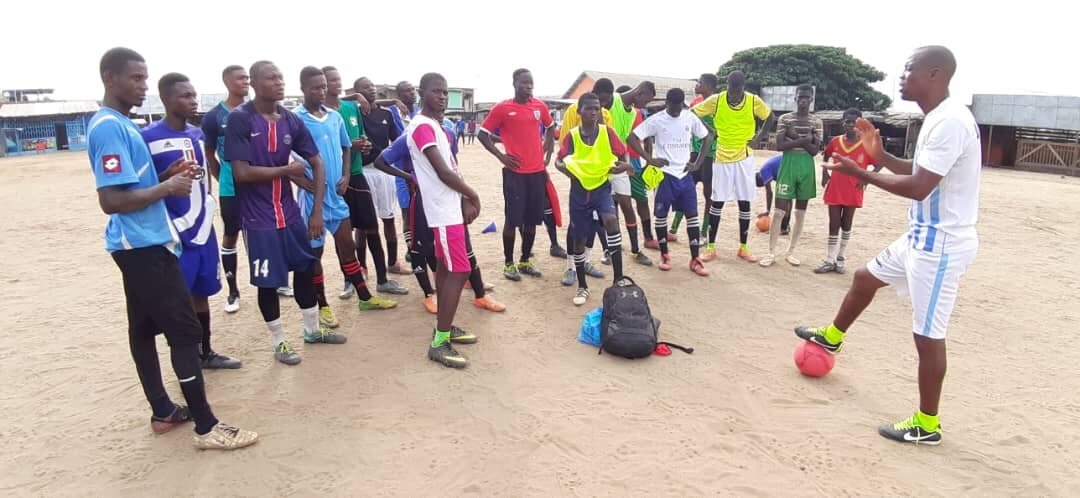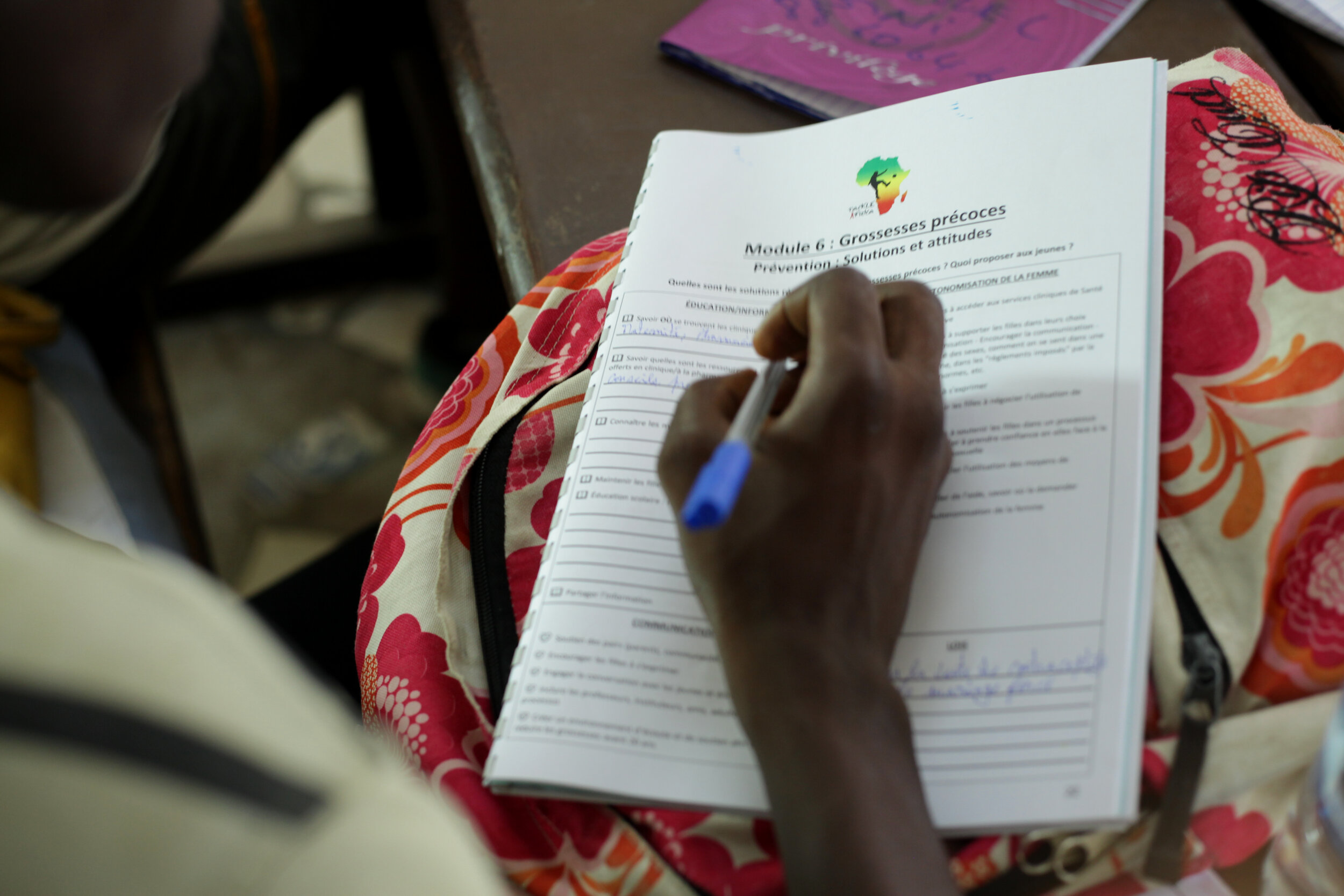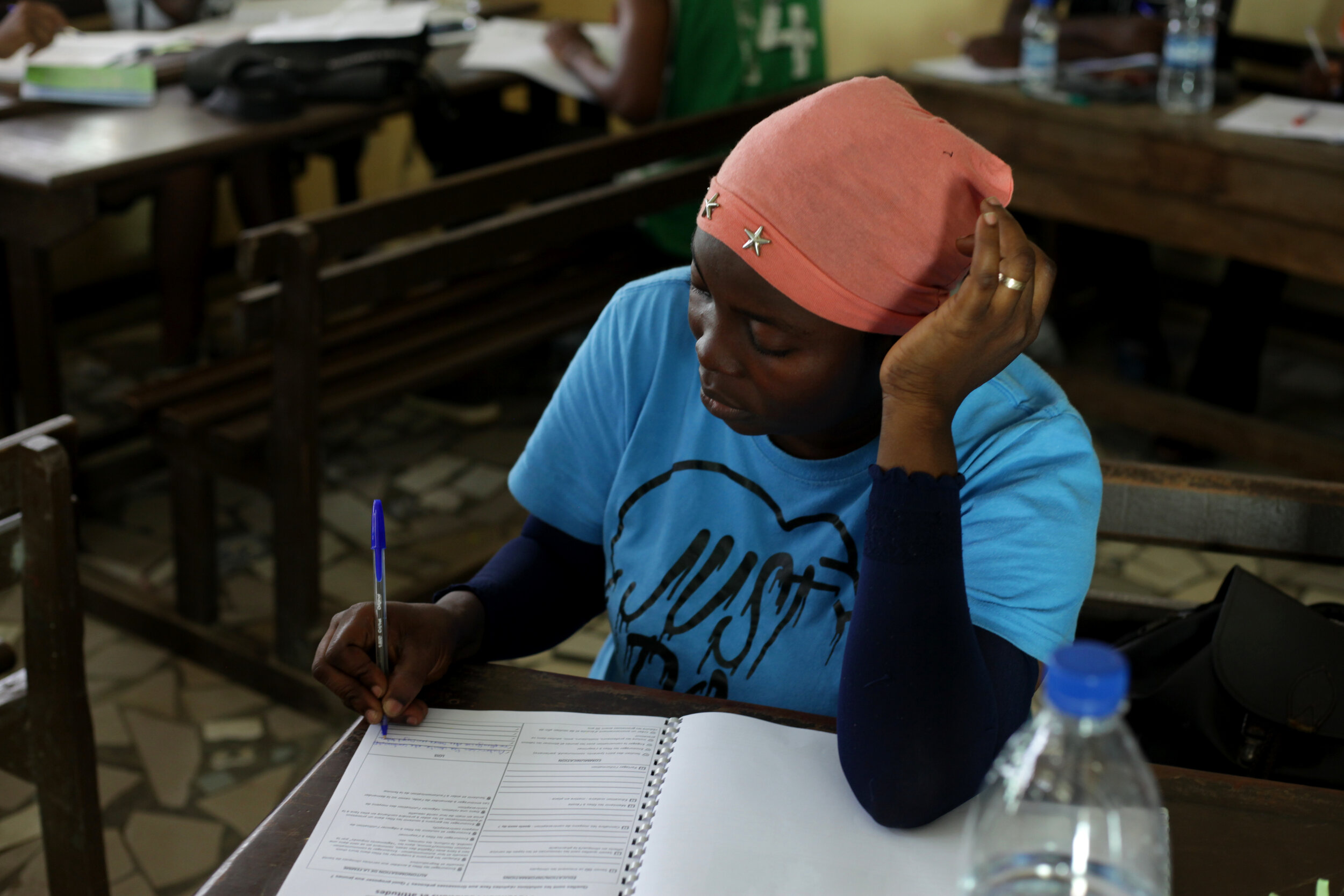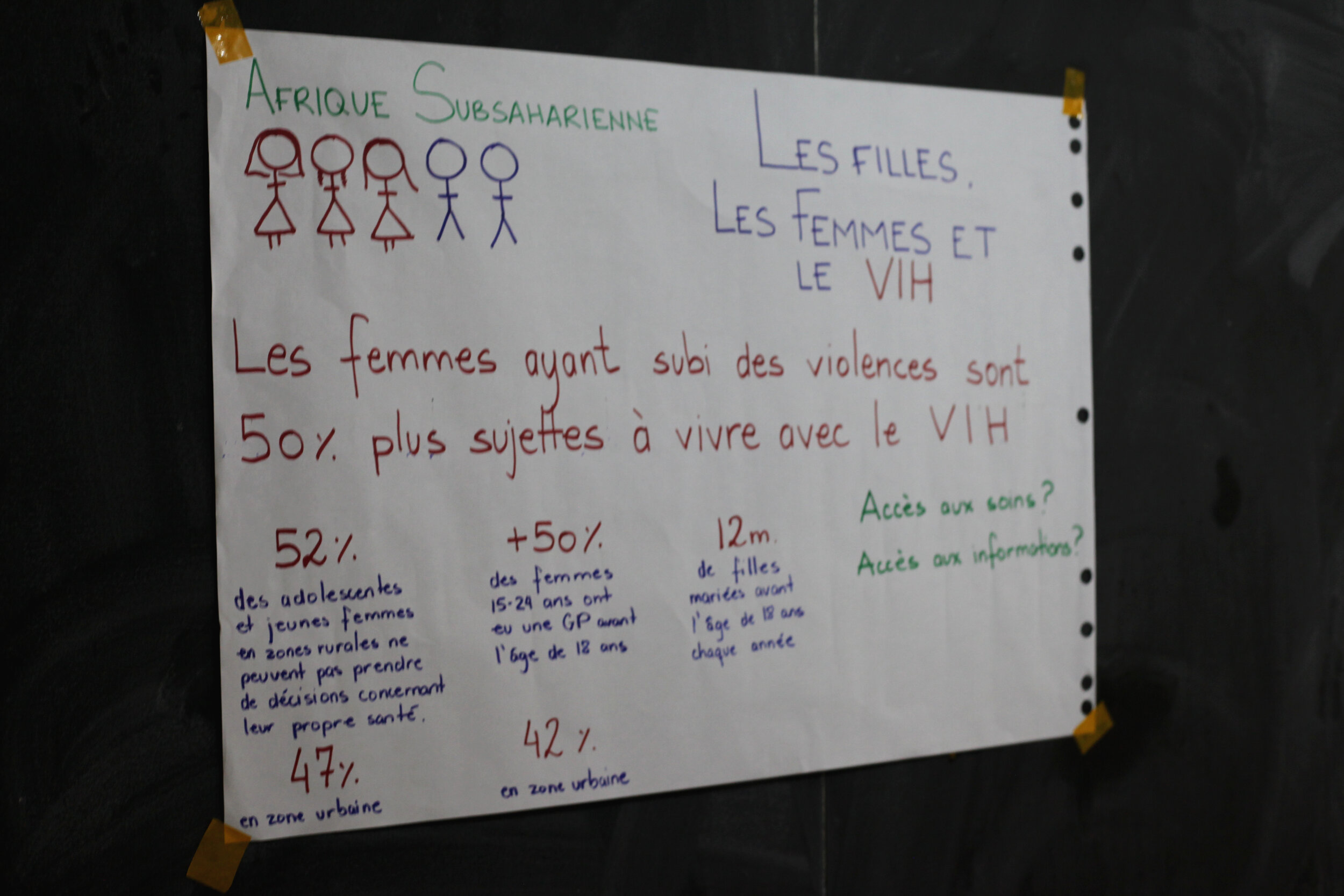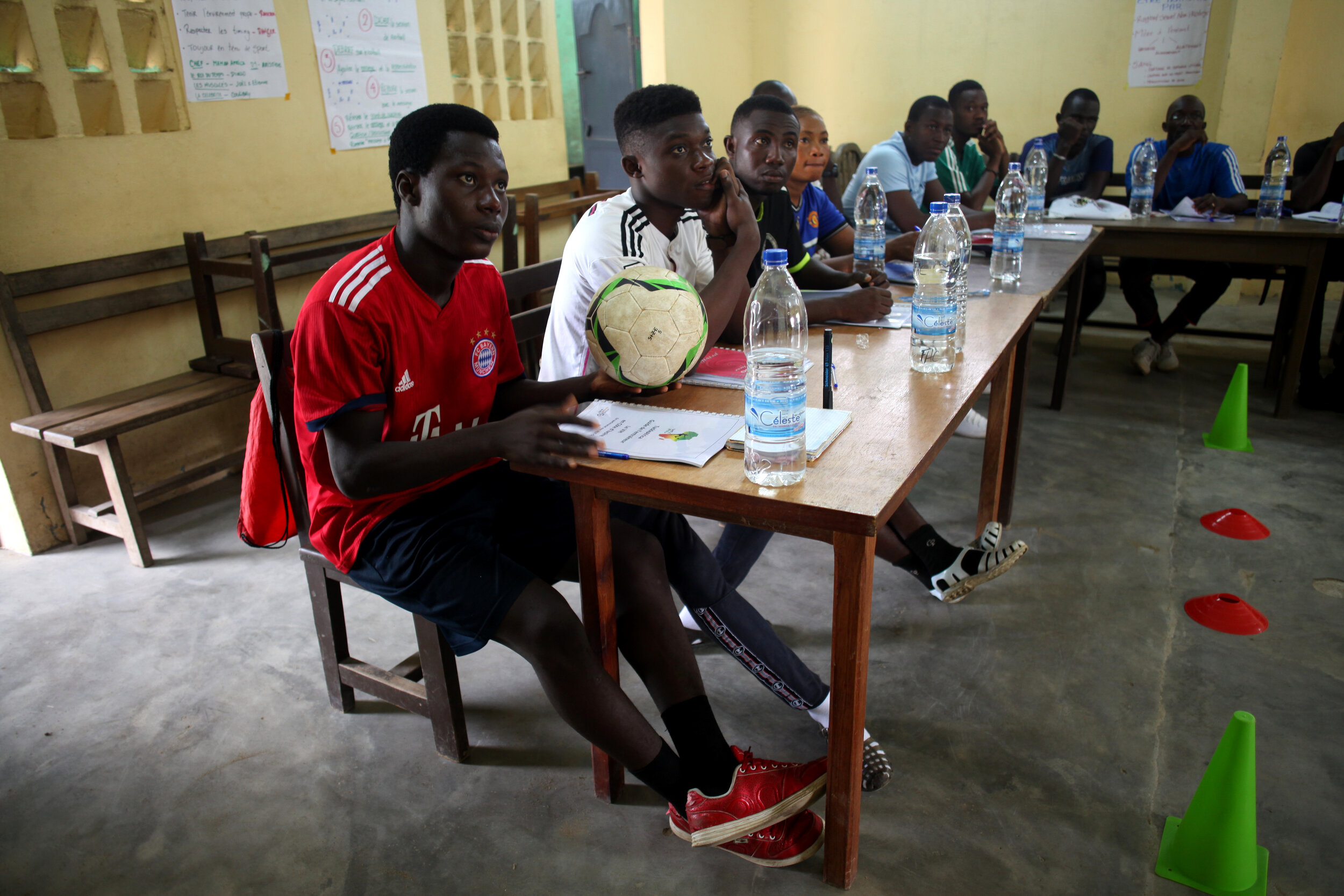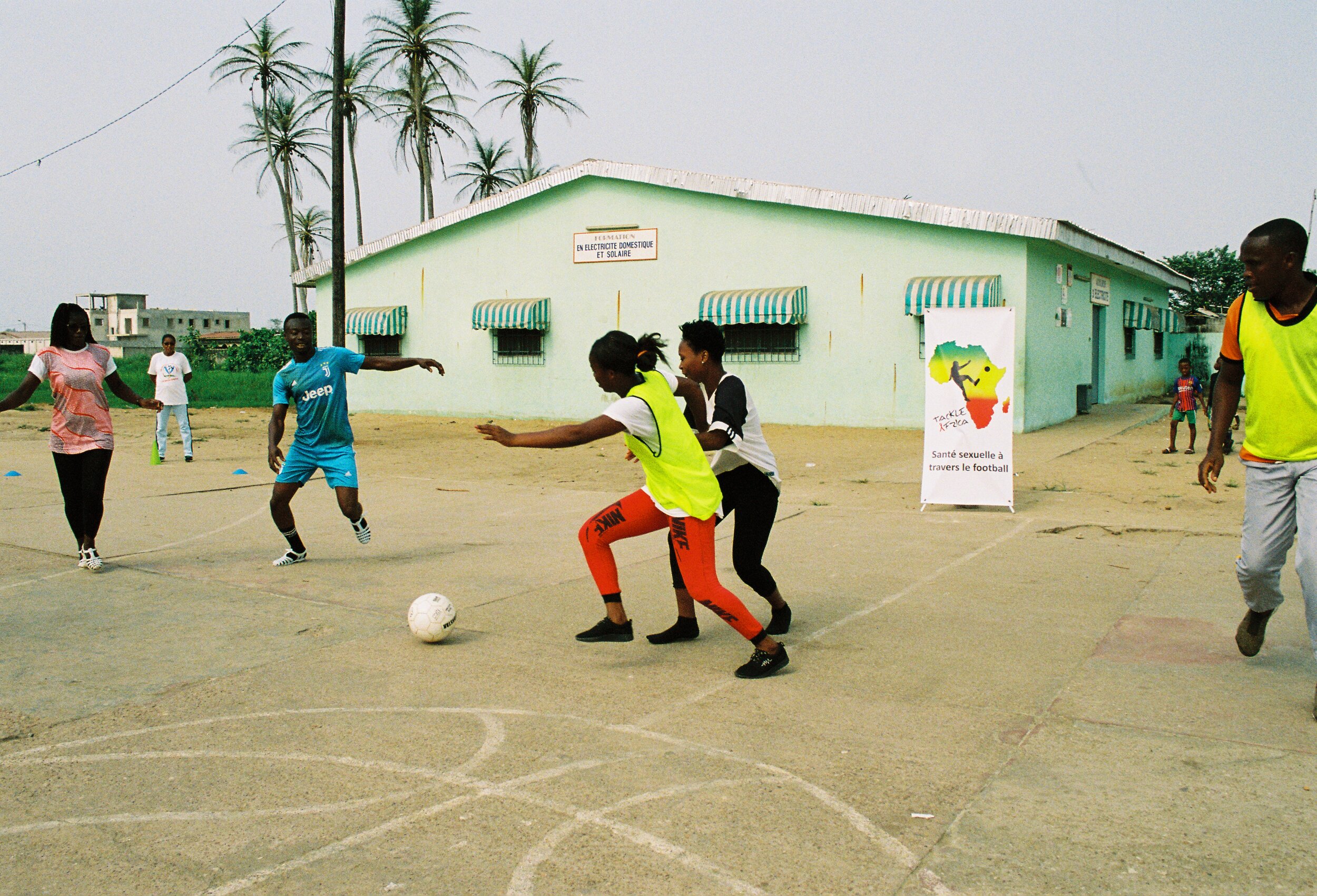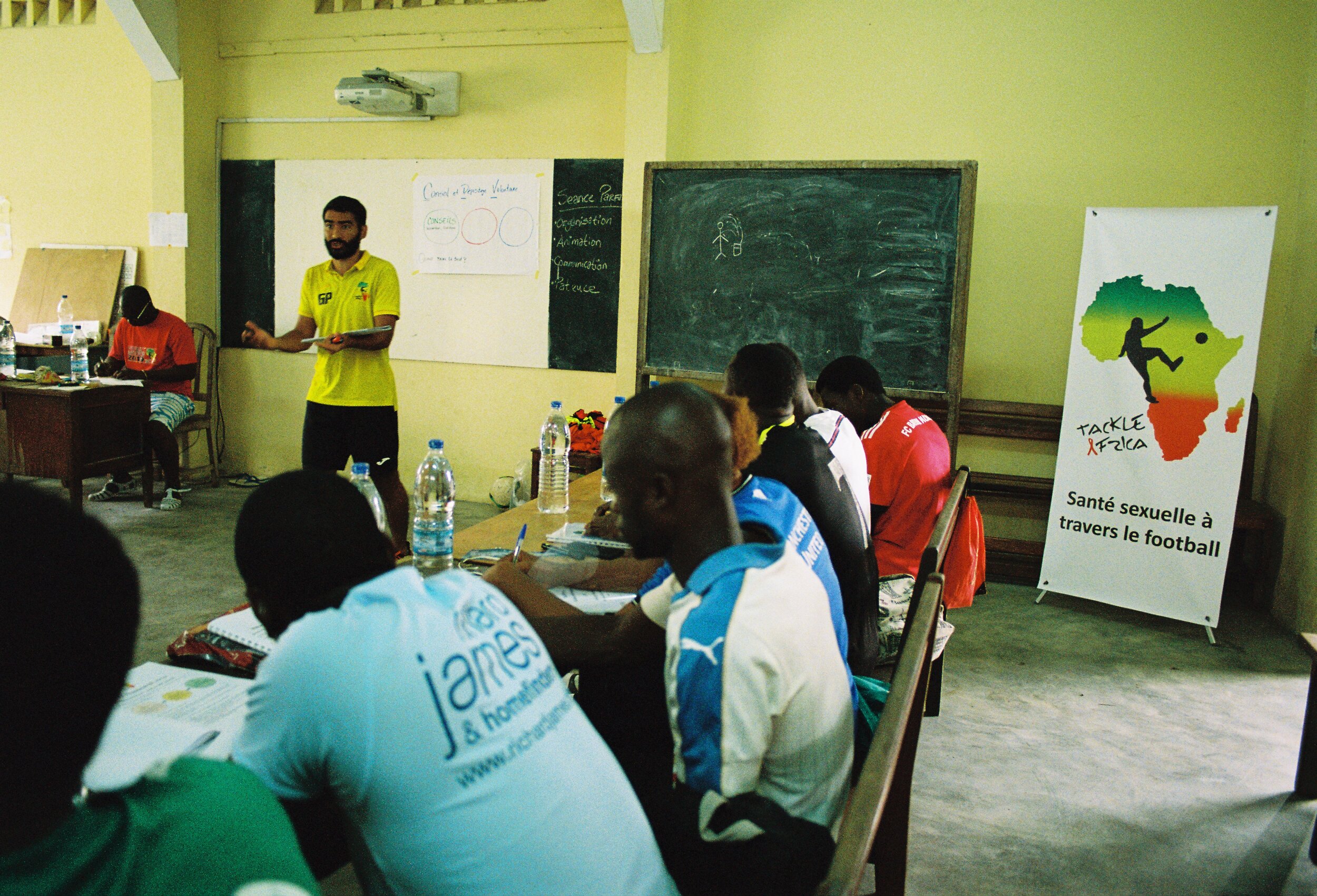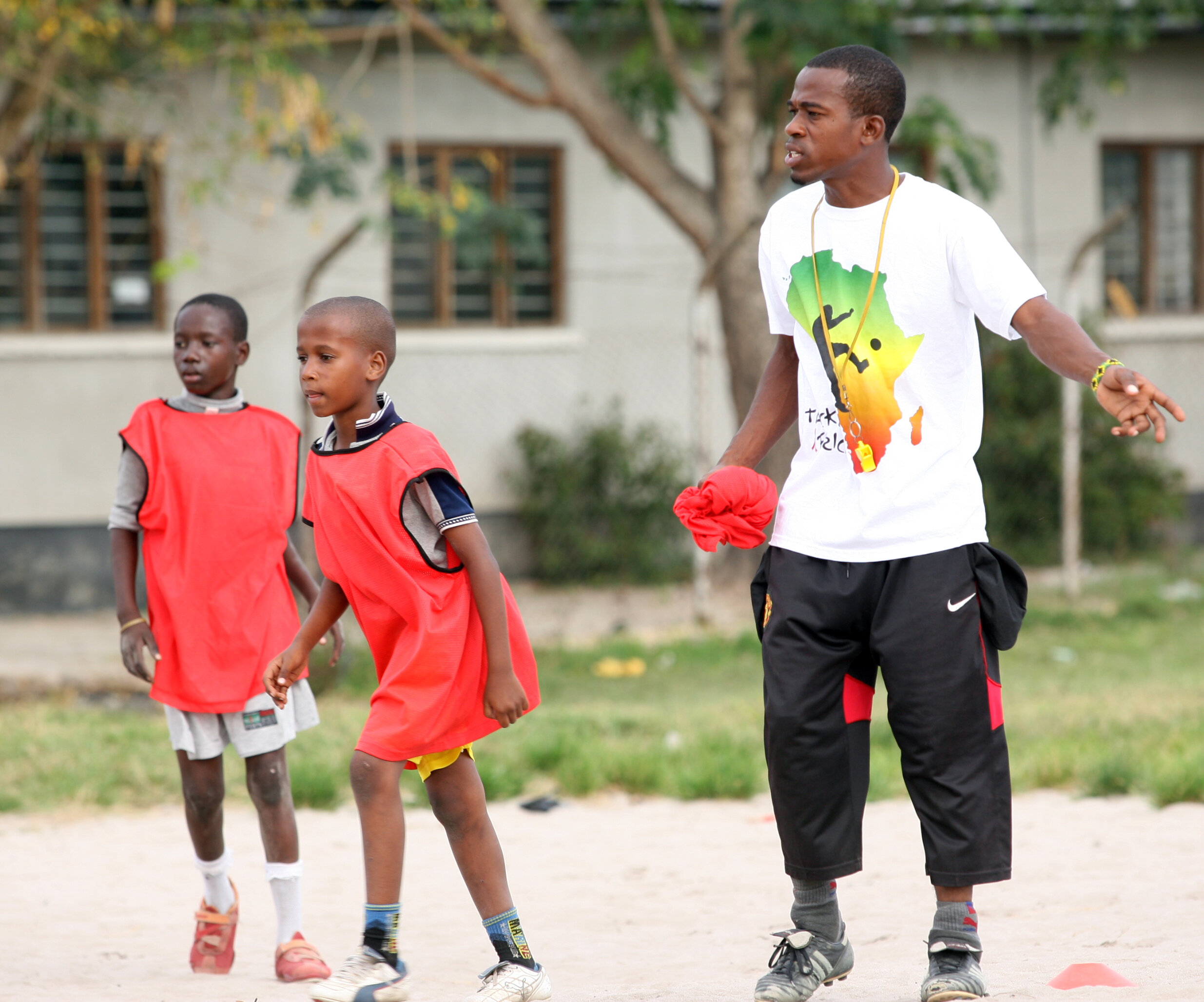Female genital mutilation (FGM) is a common practice in Guinea. Approximately 94.5% of women aged 15-49 in this small African country have been cut (source: 28 Too Many).
UP’s team in Guinea are tackling this complex issue through an unusual method: football. Working in partnership with Tackle Africa, we are using the beautiful game as a channel to deliver essential sexual and reproductive health and rights information to young people.
Above: Photographs taken during Tackle Africa’s capacity building training in the Ivory Coast.
“FGM unfortunately remains a reality in African societies for many reasons,” says Franck Ouedraogo, Tackle Africa’s Programme Manager, based in Burkina Faso. “There is evidence that the practice has numerous consequences on girls’ and women’s lives and it is a must for us to end it. Joining Tackle Africa as Programme Manager has convinced me that challenging mentalities through football is an effective way to do this.”
Angela (pictured) is a medical doctor in charge of UP Guinea’s public health programmes. Earlier this year, she completed Tackle Africa’s training in the Ivory Coast to learn how to deliver sexual health information through football. She is launching the FGM football project in Guinea this month.
We caught up with her to find out why she is so passionate about this issue – and what she hopes will be the result of the football project.
Q: Hi Angela! Could you start by telling us what motivates you to educate young people in Guinea about FGM?
Angela: FGM is a growing phenomenon in our society, it is widely practiced in our country and most often in secrecy, without the consent of young girls.
It has very serious consequences, such as:
- The immediate risk of hemorrhaging, shock, serious injury and exposure to a wide range of infections. If the hemorrhage or infection is too severe, it can even lead to death.
- Difficulties during childbirth, which can sometimes lead to death.
- Dyspareunia (painful sexual intercourse), sexual dysfunction and hypersensitivity of the genital area.
- Risk of blood-borne diseases and tetanus due to the use of soiled sharp tools (blade, knives, etc.).
Many people are unaware of the seriousness of the consequences and continue these practices. In order to combat FGM and protect young girls, we believe that young people need to be educated about the risks and consequences of this.
Q: Why is football such an effective tool to combat FGM?
Angela: Football helps participants to relax and feel united. Sport is a very good way to get messages across to young people. In addition, it is easier for a parent in Guinea to let their child go and play football than to let them go to an awareness session on FGM.
Q: What long-term impact do you hope this project will have on young people in Guinea?
Angela: My hope is that the young people we reach will be strong voices against the practice in their community. I hope that young girls will no longer simply accept these practices as part of the culture – and, if they face family pressure, that they will know where to go for assistance. Also, that the young men we reach will protect their sisters, daughters and nieces.
All of this will contribute to the reduction of the practice of FGM in our country, and eventually see the disappearance of this harmful practice.
Next steps
In partnership with Tackle Africa, UP is training a cohort of 20 football coaches to reach over 400 adolescent girls and boys with important information about FGM. Through weekly football sessions, coaches will deliver a curriculum with key messages to equip young people to protect themselves and others who may be at risk in their communities.

